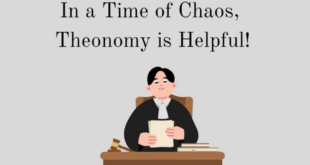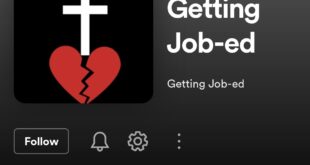I will seek the lost, and I will bring back the strayed, and I will bind up the injured, and I will strengthen the weak, and the fat and the strong I will destroy. I will feed them in justice… And I will set up over them one shepherd, my servant David, and he shall feed them: he shall feed them and be their shepherd. And I, the LORD, will be their God, and my servant David shall be prince among them. I am the LORD; I have spoken. Ezekiel 34:16, 23-24 ESV
Ezekiel 34 is a pretty awesome chapter. God is speaking and is stating that Israel’s shepherds have not been feeding the sheep but have only been feeding themselves. Israel’s lack of good leadership is, at the very least, partly responsible for the mess they’re in the Babylonian exile. We can also see this throughout Israel’s history in the Old Testament: they’re prone to wander and walk away from God, especially when they’re absent of good leadership (look at Exodus 32, Moses is gone for a short amount of time and they start worshipping a golden calf they made). What on earth does all of this have to do with Jesus?
From the Lineage of David
We saw in a previous advent that God made a covenant with David and that there will be a King that comes through His lineage that will become the King to rule eternally over His people. But in this section, the ‘King’ is presented differently: He will be a Shepherd.
We need a Shepherd
As we’ve discussed, we see that in the Old Testament Israel is prone to wander away from God. On this side of the Biblical Timeline (New Testament), we are the exact same way. In fact, I would argue that unless God supernaturally keeps us close to Him, we would wander away altogether.
When we say that we will have a King, it could also seem that He is so transcendent and far away that He’s not personal. But in Ezekiel, we catch that by Him being our Shepherd, He is also imminently close to us. So what are some implications that this King would someday be our Shepherd?
- The Shepherd rescues the sheep. The Shepherd sees that the sheep are utterly powerless and incapable of fending for themselves, so He takes it upon Himself to be the acting agent to rescue and save the sheep. John 10:1-18
- The Shepherd guides the sheep. The flock doesn’t know what they’re doing on their own. They don’t understand what the whole objective goal is. We need someone to constantly be guiding us, moving us in the direction of safety and green pastures: “The LORD is my shepherd; I shall not want. He makes me lie down in green pastures. He leads me beside still waters.” Psalm 23:1-2 ESV
- The Shepherd feeds the sheep. By guiding the sheep, the Shepherd also provides. The sheep that follow Him have no reason to worry about how situations will work out. He will provide (Matthew 6:25-34).
- The Shepherd protects the sheep. The Shepherd can see dangers that the flock can not. Those dangers can be many: ravenous wolves all the way to the sheep’s own carelessness. He will protect the sheep from outside dangers, while also protecting the sheep from harming themselves at times (Proverbs 3:12, Job 36:15).
Conclusion
I want us to end with fast-forwarding to a statement that was made by Jesus:
My sheep hear my voice, and I know them, and they follow me. I give them eternal life, and they will never perish, and no one will snatch them out of my hand. My Father, who has given them to me, is greater than all, and no one is able to snatch them out of the Father’s hand. I and the Father are one.” John 10:27-30 ESV
We need a King to rule over us and a Shepherd to guide us by the hand.
 Getting Job-ed
Getting Job-ed


